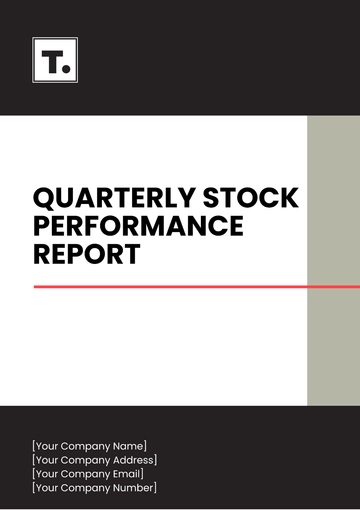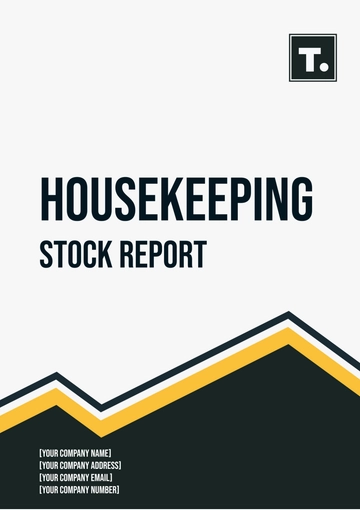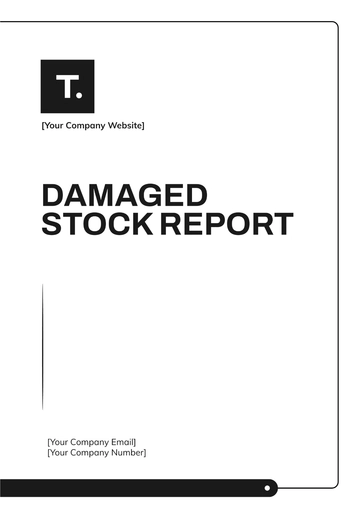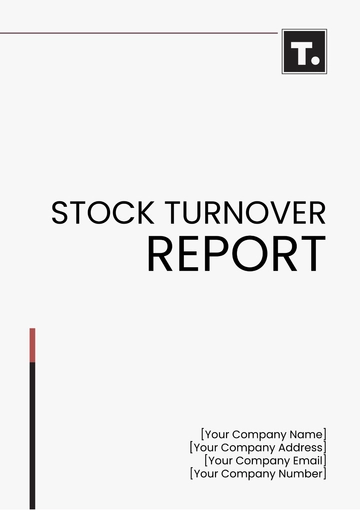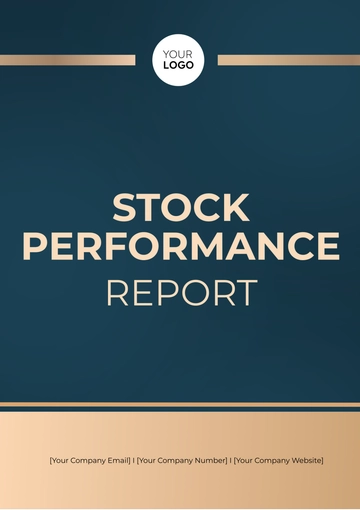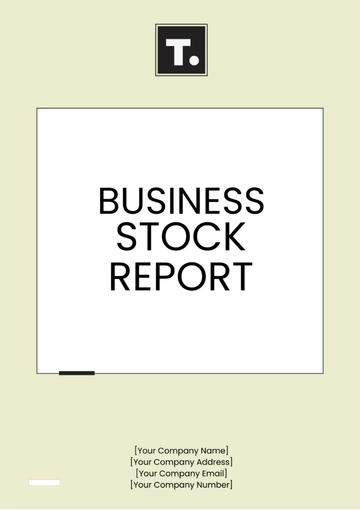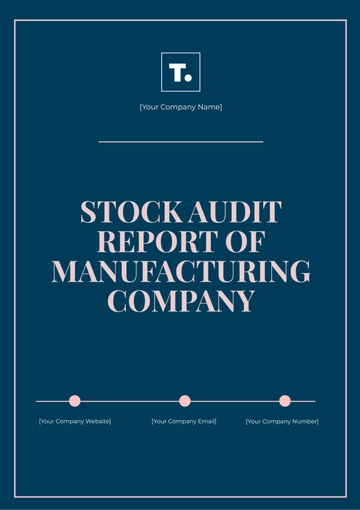Free Stock Turnover Report
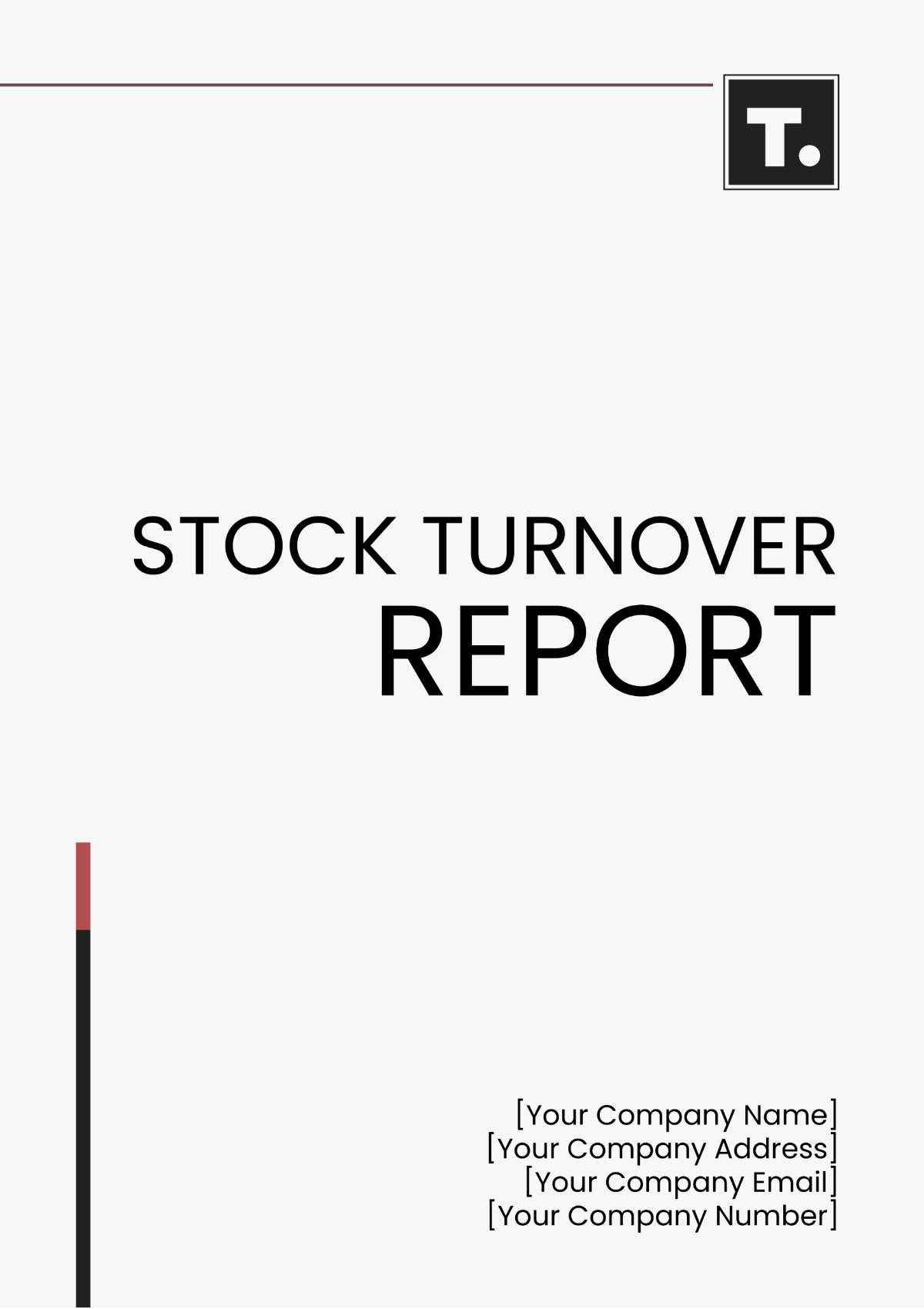
I. Introduction
In accordance with the operational performance review for the fiscal year ending 2054, this Stock Turnover Report analyzes [YOUR COMPANY NAME]'s inventory management efficiency. The report provides insights into the turnover ratio, inventory levels, and their impact on financial and operational metrics.
II. Executive Summary
[YOUR COMPANY NAME] achieved a commendable stock turnover ratio of 6.2 times during the fiscal year 2054. This indicates efficient inventory management, translating to optimized working capital and improved operational performance.
III. Methodology
The calculation of stock turnover ratio is based on the formula:
Stock Turnover Ratio = Cost of Goods Sold (COGS) / Average Inventory
Where:
COGS: $10,500,000
Average Inventory: $1,700,000
IV. Analysis
A. Stock Turnover Ratio Trend
The trend analysis reveals a consistent stock turnover ratio of 6.2 times over the past three years, indicating stable and efficient inventory management practices.
B. Inventory Management Efficiency
[YOUR COMPANY NAME] maintained a healthy balance between inventory turnover and stock levels, minimizing the risk of overstocking and ensuring prompt fulfillment of customer demand.
C. Impact on Financial Performance
Efficient inventory turnover positively impacted [YOUR COMPANY NAME]'s financial performance by reducing carrying costs and improving cash flow management.
V. Detailed Analysis by Product Category
A. Consumer Electronics
Turnover Ratio
Turnover Ratio: 8.0 times
Inventory Management Insights
Month | Sales (Units) | COGS ($) | Average Inventory ($) |
|---|---|---|---|
Jan | 10,000 | $2,000,000 | $300,000 |
Feb | 9,500 | $1,900,000 | $320,000 |
Mar | 11,200 | $2,240,000 | $280,000 |
Key Observations: Consumer Electronics category showed higher turnover, indicating strong demand and effective inventory management strategies.
B. Software Solutions
Turnover Ratio
Turnover Ratio: 5.5 times
Inventory Management Insights
Month | Sales (Units) | COGS ($) | Average Inventory ($) |
|---|---|---|---|
Jan | 15,000 | $1,500,000 | $450,000 |
Feb | 14,500 | $1,550,000 | $420,000 |
Mar | 16,200 | $1,800,000 | $400,000 |
Key Observations: Software Solutions category maintained steady turnover, influenced by subscription renewals and new product launches.
VI. Recommendations
A. Operational Recommendations
Optimization Strategies: Implement automated reorder points to minimize stockouts and excess inventory.
Technology Integration: Adopt advanced inventory management software for real-time tracking and forecasting.
B. Financial Recommendations
Working Capital Management: Negotiate favorable terms with suppliers to improve cash flow and reduce financing costs.
Cost Reduction Initiatives: Explore options for Just-in-Time inventory management to lower holding costs.
VII. Conclusion
In conclusion, [YOUR COMPANY NAME] demonstrates robust inventory management practices as evidenced by its consistent stock turnover ratio and efficient utilization of resources across various product categories. Moving forward, continuous monitoring and optimization of inventory levels will be crucial to sustaining operational efficiency and enhancing profitability.
- 100% Customizable, free editor
- Access 1 Million+ Templates, photo’s & graphics
- Download or share as a template
- Click and replace photos, graphics, text, backgrounds
- Resize, crop, AI write & more
- Access advanced editor
Maximize your inventory management with the Stock Turnover Report Template from Template.net. This fully customizable and editable template ensures you track stock efficiently. Utilize the AI Editor Tool to tailor it to your specific needs, providing clear insights and actionable data. Perfect for businesses aiming to improve stock control and optimize operations seamlessly.
You may also like
- Sales Report
- Daily Report
- Project Report
- Business Report
- Weekly Report
- Incident Report
- Annual Report
- Report Layout
- Report Design
- Progress Report
- Marketing Report
- Company Report
- Monthly Report
- Audit Report
- Status Report
- School Report
- Reports Hr
- Management Report
- Project Status Report
- Handover Report
- Health And Safety Report
- Restaurant Report
- Construction Report
- Research Report
- Evaluation Report
- Investigation Report
- Employee Report
- Advertising Report
- Weekly Status Report
- Project Management Report
- Finance Report
- Service Report
- Technical Report
- Meeting Report
- Quarterly Report
- Inspection Report
- Medical Report
- Test Report
- Summary Report
- Inventory Report
- Valuation Report
- Operations Report
- Payroll Report
- Training Report
- Job Report
- Case Report
- Performance Report
- Board Report
- Internal Audit Report
- Student Report
- Monthly Management Report
- Small Business Report
- Accident Report
- Call Center Report
- Activity Report
- IT and Software Report
- Internship Report
- Visit Report
- Product Report
- Book Report
- Property Report
- Recruitment Report
- University Report
- Event Report
- SEO Report
- Conference Report
- Narrative Report
- Nursing Home Report
- Preschool Report
- Call Report
- Customer Report
- Employee Incident Report
- Accomplishment Report
- Social Media Report
- Work From Home Report
- Security Report
- Damage Report
- Quality Report
- Internal Report
- Nurse Report
- Real Estate Report
- Hotel Report
- Equipment Report
- Credit Report
- Field Report
- Non Profit Report
- Maintenance Report
- News Report
- Survey Report
- Executive Report
- Law Firm Report
- Advertising Agency Report
- Interior Design Report
- Travel Agency Report
- Stock Report
- Salon Report
- Bug Report
- Workplace Report
- Action Report
- Investor Report
- Cleaning Services Report
- Consulting Report
- Freelancer Report
- Site Visit Report
- Trip Report
- Classroom Observation Report
- Vehicle Report
- Final Report
- Software Report


